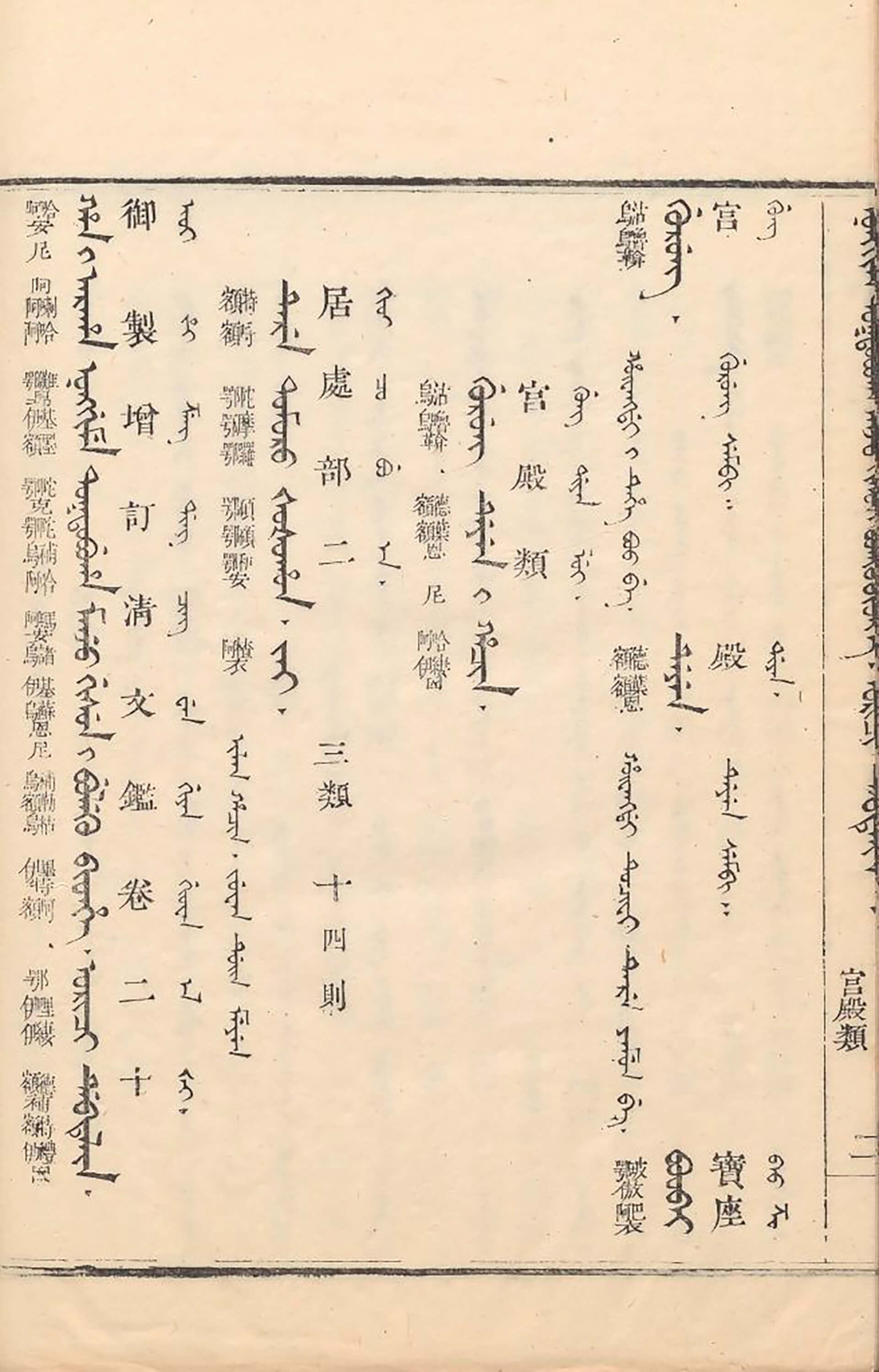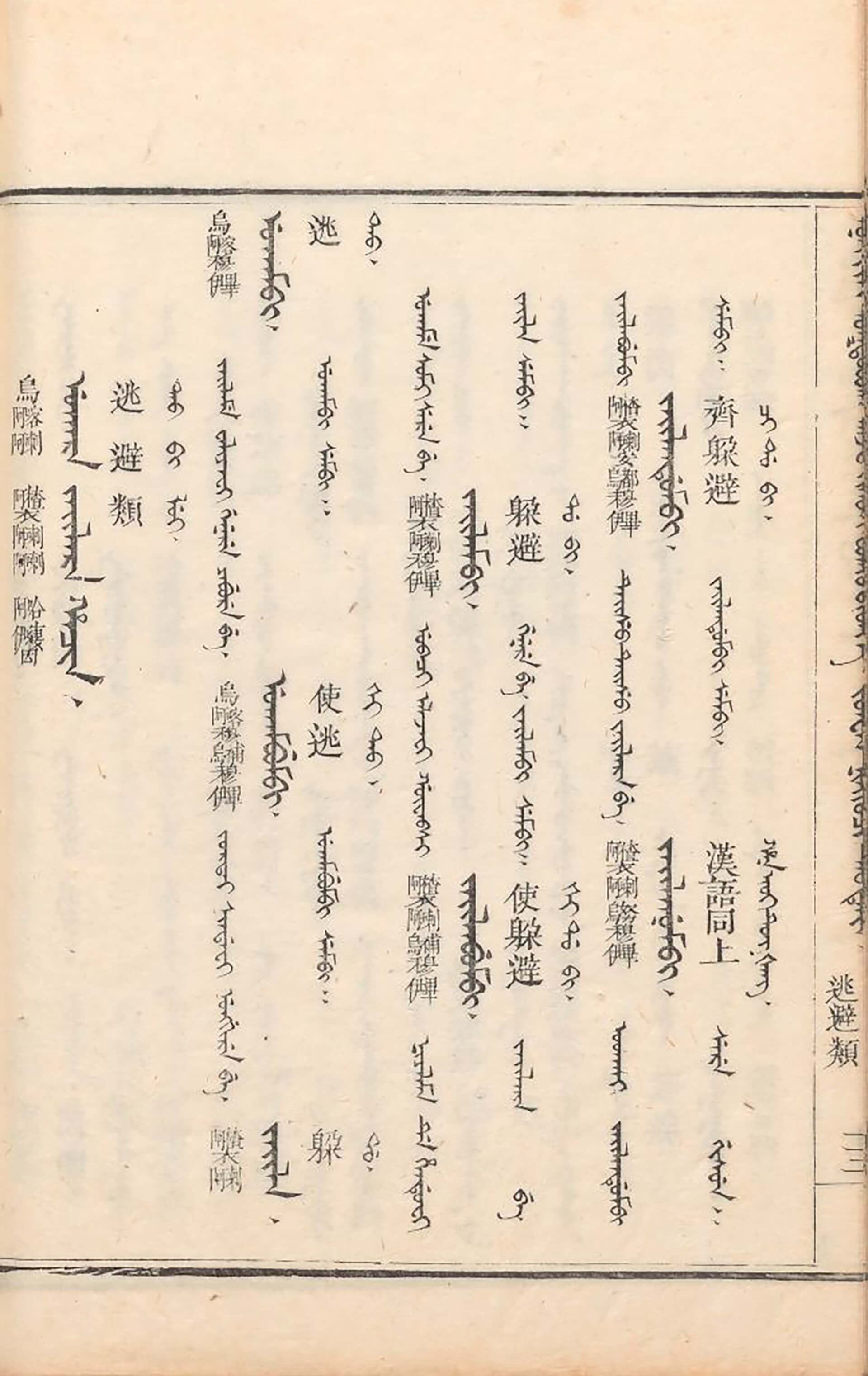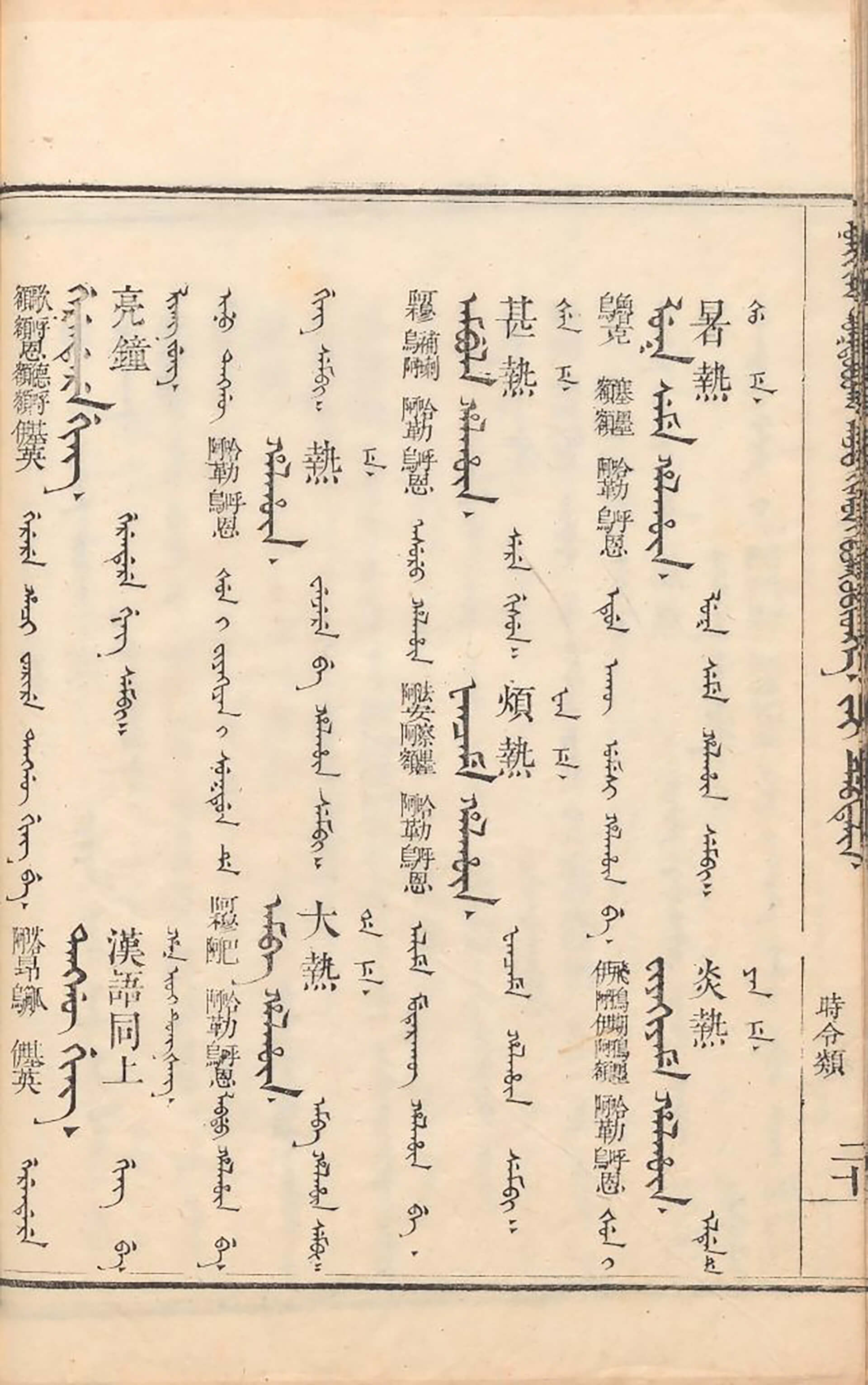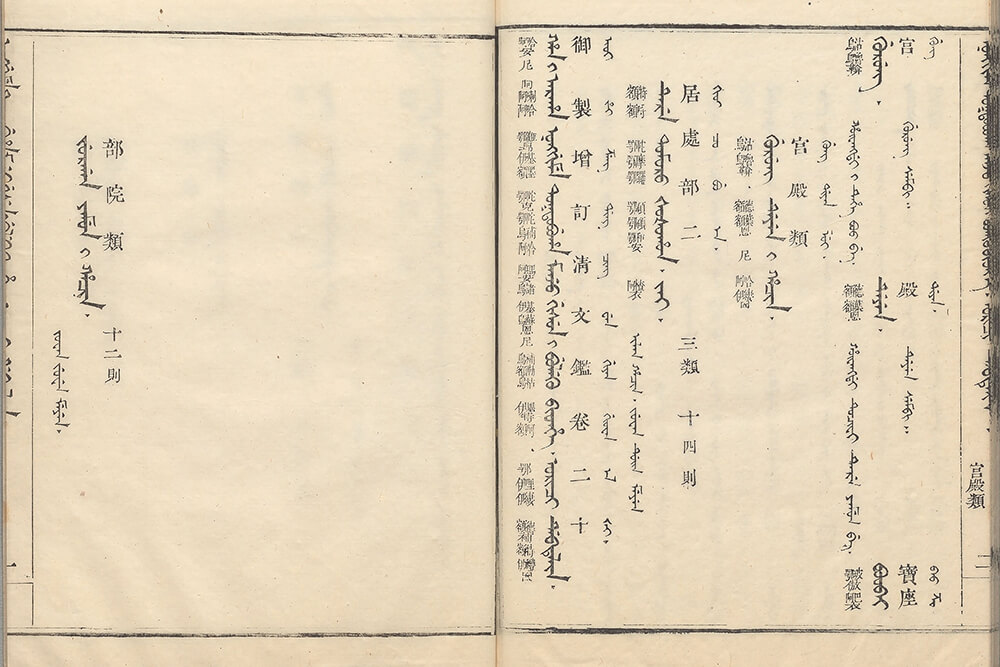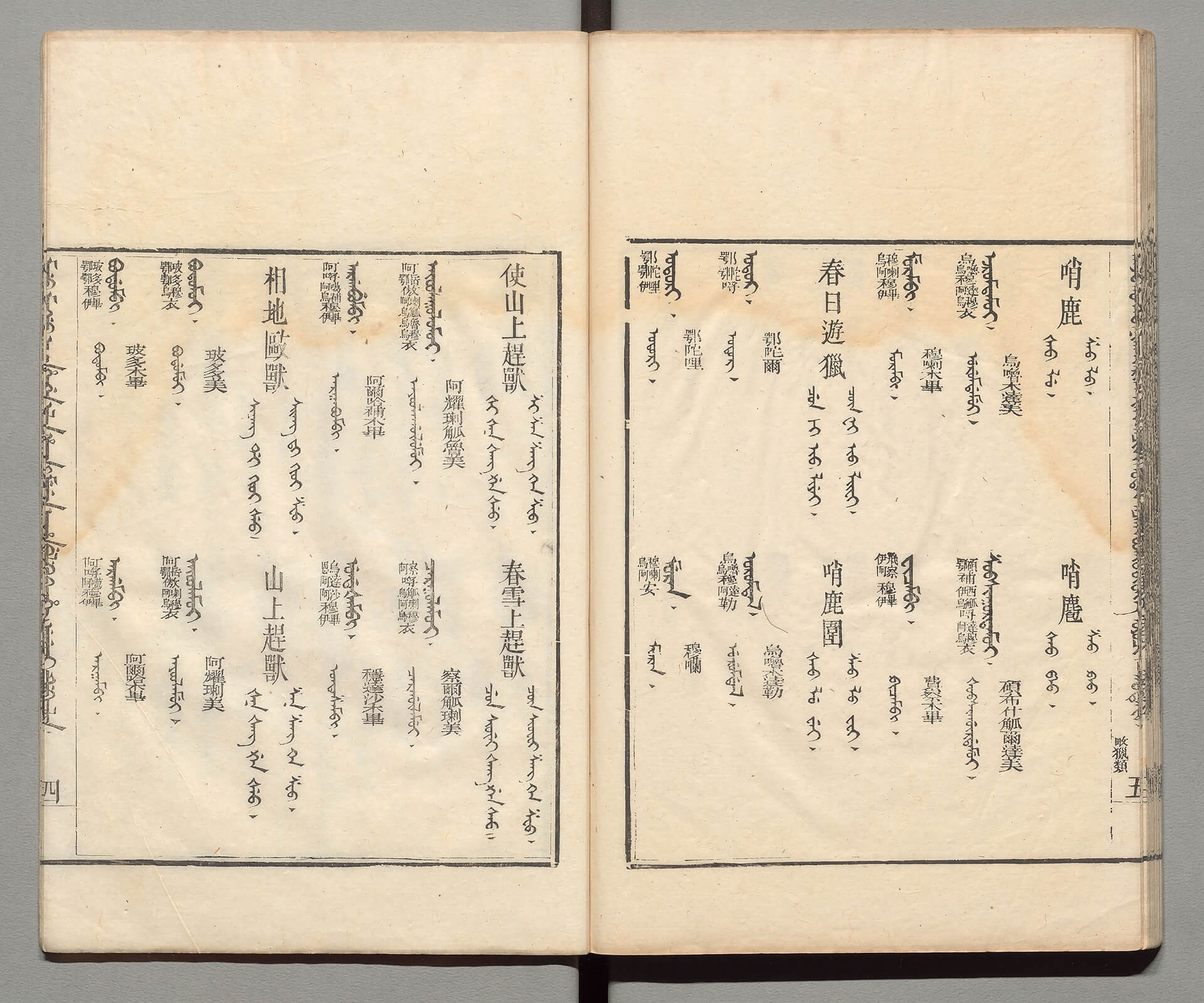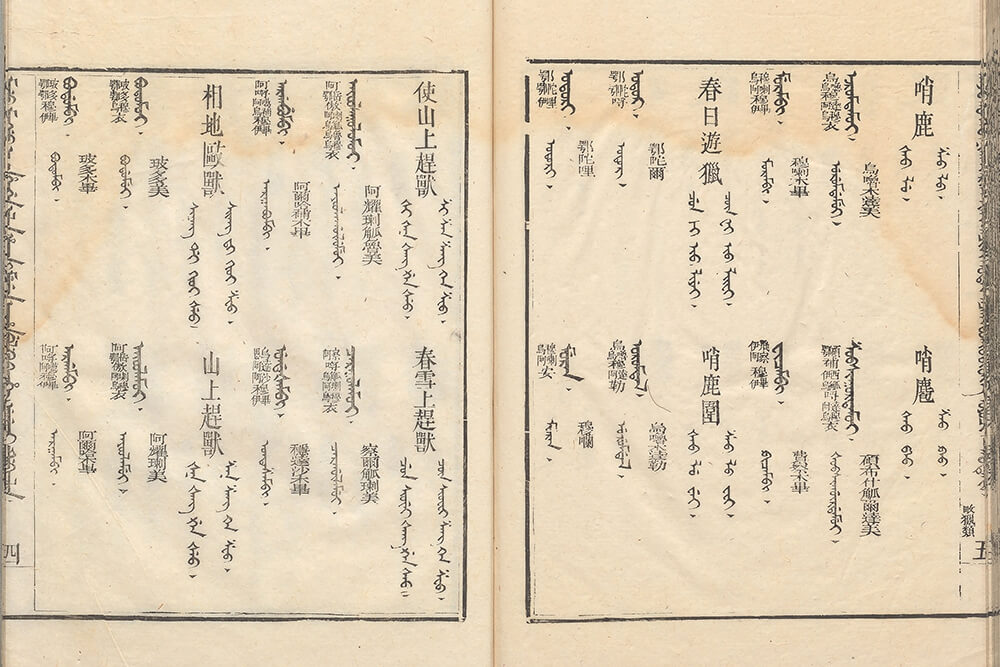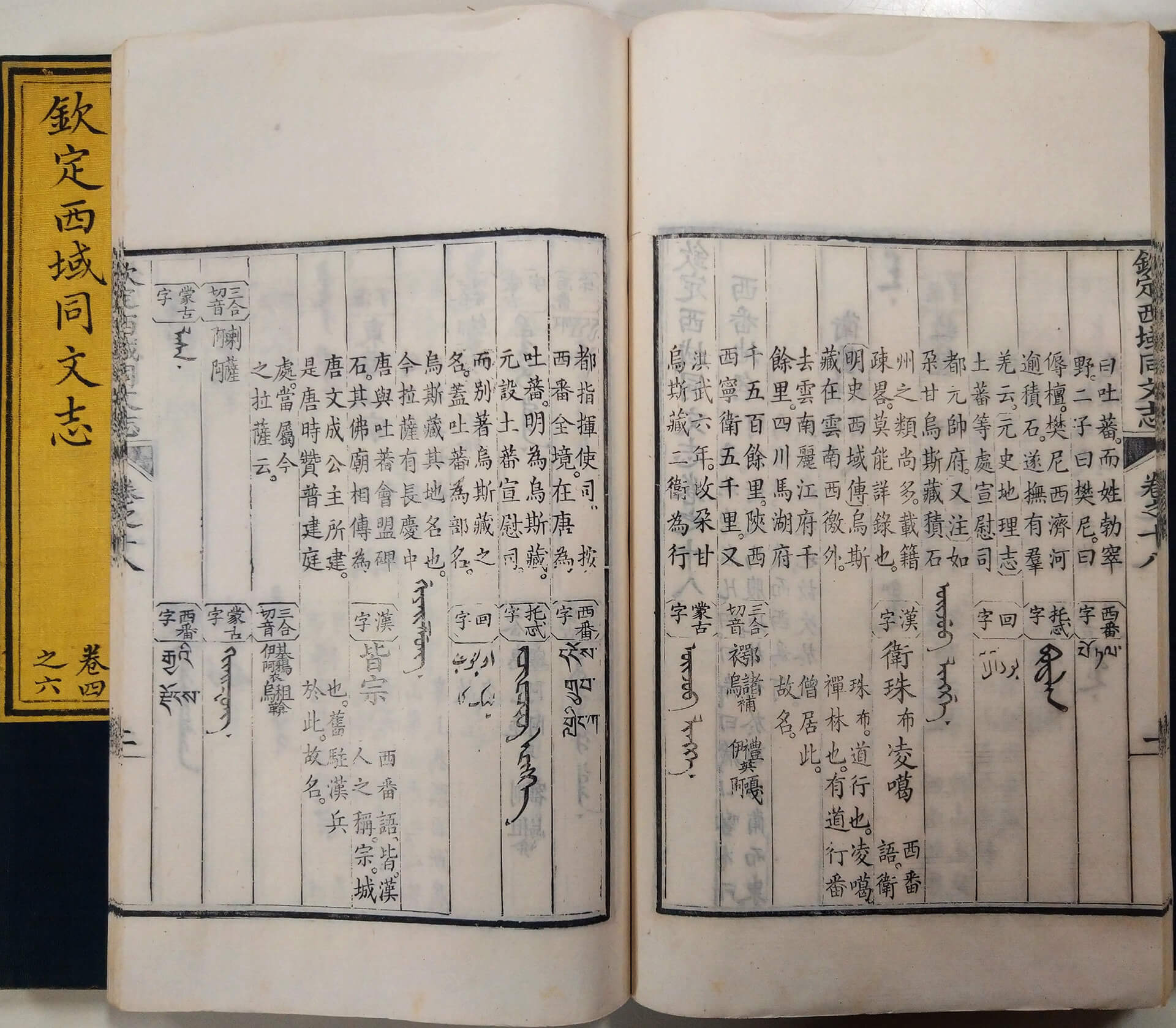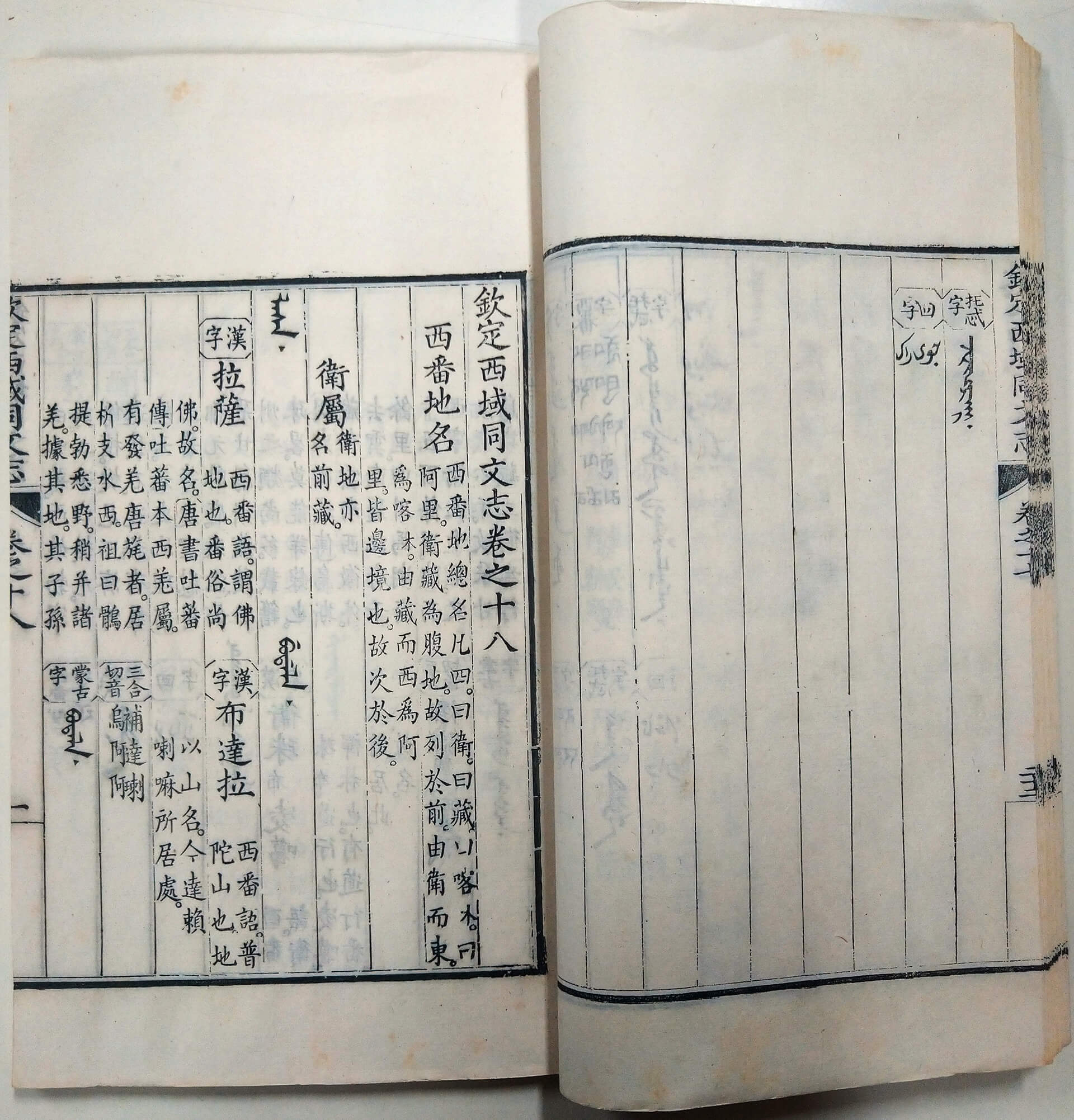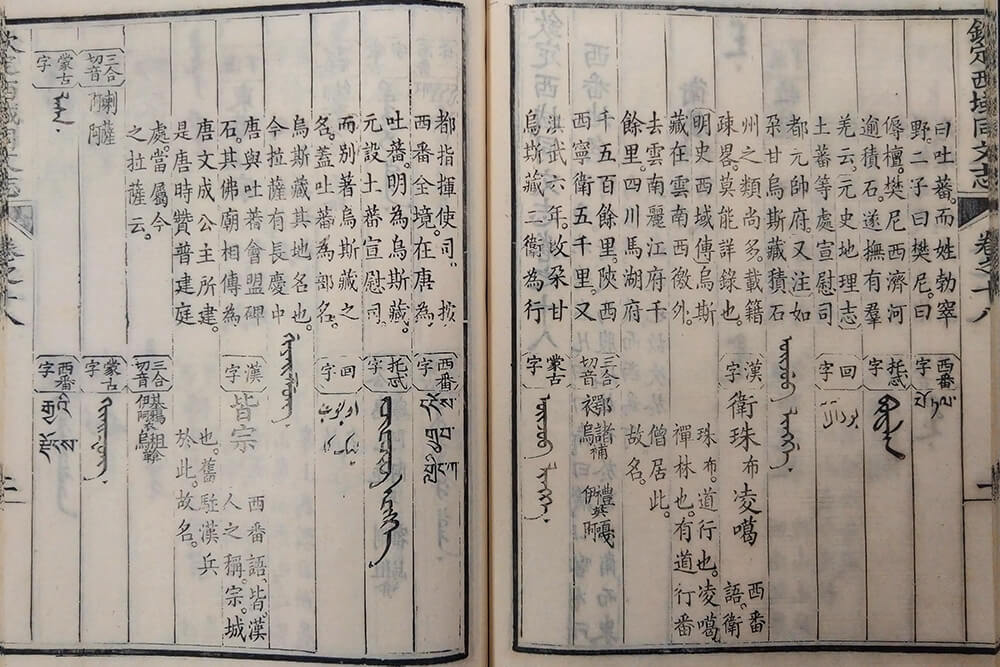Linguistic Diversity
The plaque on the Lizheng Gate, the main entrance to the Chengde Summer Resort, carries the name of the gate in five scripts - Manchu, Mongolian, Chinese, Tibetan, and Hui. When the Qing Empire was founded, Manchu, Mongolian, and Chinese were designated the official languages; later, with expansion of the Empire's territory, Tibetan (Tibetan/Tangut scripts) and Uighur were added. This linguistic diversity was a key feature of the Qing multi-ethnic state. In order to facilitate communication, the Qing court compiled a series of multi-lingual glossaries and publications. While the pre-eminence of the Manchu language and script was established in Qing linguistic policy, other ethnic groups were also able to continue to use their own languages and scripts.
Dictionaries in Multiple Languages
To rule the country and promote administrative affairs, the Qing court edited foreign language dictionaries such as Qingwenjian and Xiyu Tongwenzhi. Such efforts unveiled the multicultural governance role played by the Qing Empire. In 1771, Emperor Qianlong decreed that relevant personnel reference Yuzhi Qingwenjian and add more words, producing the Yuzhi Zengding Qingwenjian. In 1779, Yuzhi Manzhumengguhanzi Sanhe Qieyin Qingwenjian was introduced. Said dictionary contains dictionary entries in Manchu, Mongolian, and Chinese as well as two types of phonetic transcription. Xiyu Tongwenzhi primarily contains the names of important people and places in new Qing Empire territories. Said names were first written in Manchu and translated (normal and phonetic) to Chinese, Mongolian, Western region language, Clear Script, and Hui, boosting people's knowledge of places such as Altishahr and Tibet.
Yuzhi Zengding Qingwenjian (Imperially Produced Expanded Manchu Phonetic Dictionary)
- Written by Fu Heng, et al., on imperial order
- Imprint by the Imperial Printing Office at Wuyingdian Hall, 36th year of the Qianlong reign (1771), Qing dynasty
"Summer Resort" in Manchu reads "halhūn be jailara Gurung." By using Yuzhi Zengding Qingwenjian, we can see that "halhūn be jailara gurung" means the "a palace to escape the heat."
Entry for
tianlie (hunting)- From fascicle 11 of Manzhumengguhanzi Sanhe Qieyin Qingwenjian (Manchu, Mongolian, and Chinese Triglot Phonetic Dictionary)
- Written by A Gui, et al., on imperial order
- Imprint by the Imperial Printing Office at Wuyingdian Hall, 57th year of the Qianlong reign (1792), Qing dynasty
"Shaoluwei" (hunting ground in Chinese) is written as "
 " and "
" and "  " in Manchu and Mongolian, respectively.
" in Manchu and Mongolian, respectively.Qinding Xiyu Tongwenzhi (Imperially Endorsed Comparative Glossary of the Languages in the Western Regions)
- Written by Fu Heng, et al., on imperial order
- Manuscript from Siku Quanshu Huiyao (Complete Collection of the Four Treasuries Condensed), Qianlong reign (1736-1795), Qing dynasty
In western region language, "potala" means "Mount Putuo," a mountain where Dalai Lama lived in the Qing dynasty.
